Stefan Austermühle, General Manager of Gemrock Peru June 2021
Recently many of our clients do start asking questions about our minerals and crystals being ethically mined. We are very glad about this growing interest of retail businesses all around the world in the topic of ethical mining. But what does “ethical mining” actually mean?
War – the dirty secret of crystal mining

Surely, for many, the first thing that comes to mind when thinking about “ethical Mining” is the Leonardo DiCaprio Movie “blood diamonds” which highlighted the responsibility of international companies for supporting rebel groups and warlords in Africa waging war on the income generated from diamond mining.
But few are aware of the fact that the Emerald Mining in Colombia even nowadays is dominated by drug lords that
maintain private armies that have been trained by Israeli mercenaries. These drug-kings are siding with the government and their private troops did fight alongside the Colombian army against the FARC. So the government in Colombia must tolerate drug trade and monopolized emerald mining in order to keep the FARC under control. This unholy alliance did not stop because the FARC and the government declared a fragile piece but exists till today.
Sure – all these are gemstones. So the question is, if the global crystal trade is untouched by such problems? Surely not.
I can’t stop wondering how a global public would reconcile their need for energy healing if they would be aware of the fact that Afghanistan’s 6,500 year old lapis mines are driving corruption, conflict and extremism in the country. The NGO “Global Witness” has found that the Taliban and other armed groups are earning up to 20 million dollars per year from Afghanistan’s lapis mines, the world’s main source of the brilliant blue lapis lazuli stone, which is sold in crystal shops and by jewelers all around the world.
A detailed investigation into crystal and gemstone mining all around the world surely would uncover a number of uncomfortable surprises. And indeed the dirty secrets of crystal mining already start to unravel:
Great, you just got new cheap crystals from Madagaskar!
Maybe not so great?
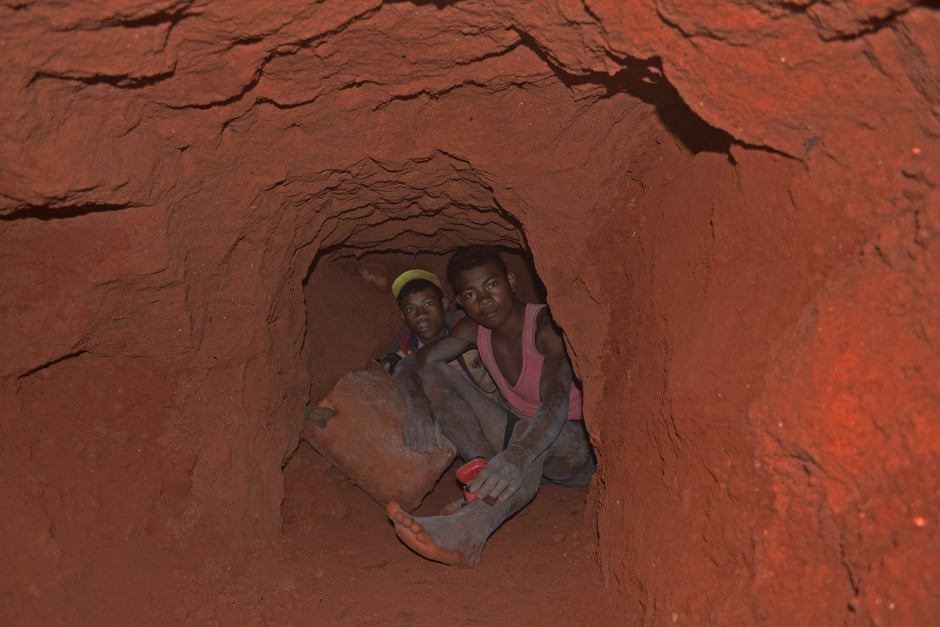
According to an investigation by “The Guardian” Madagascar is one of the poorest countries in the world, but beneath its soil is a well-stocked treasure chest. Rose quartz and amethyst, tourmaline and citrine, labradorite and carnelian: Madagascar has them all.
Gems and precious metals were the country’s fastest-growing export in 2017 – up 170% from 2016, to $109m. This island country of 25 million people now stands alongside far larger nations, such as India, Brazil and China, as a key producer of crystals for the world.
Child Miners in Madagaskar
And in a country where infrastructure, capital and labor regulation are all in short supply, it is human bodies rather than machinery that pull crystals from the earth. More than 80% of crystals are mined “artisanally” – meaning by small groups and families, without regulation, who are paid rock-bottom prices. Additionally the further you travel from the capital, the greater the security risks. Large swathes of territory are described as “red zones”, considered unpoliceable by state forces. Rural villages often face raids from armed gangs, who steal cattle, sometimes killing, robbing or raping villagers.
‘Healing crystals’ are mined in places like Myanmar and the Democratic Republic of Congo where mineral extraction is linked to severe human-rights violations and environmental harm. In the DRC, seven-year-old children work in the cobalt and copper mines, where covetable “healing” stones such as citrine and smoky quartz abound.
As more and more cases do surface, it seems to be time for the crystal collectors and crystal healing community to take a stand for ethical mining.
Stephen Wells is one of a handful of sellers who prides himself on his ethical practices.
For Stephen Wells at Kacha Stones, the importance of ethical crystal mining is not solely about the impact on the planet, but also on the crystal itself – he believes the mining of a stone affects its healing properties. “Taking something by force, destructively, has an effect on any living thing. Crystals are archetypal pure frequencies, nature’s perfect geometric tuning forks. Can anyone imagine the shockwaves of explosions having no impact?”

Gemrocks´ Startup Support
Starting a crystalshop (online or physical) is not easy – we know. But we believe in you and we have your back, because your success is ours.
We support startup companies with lower shipping prices. You can order without minimum amounts. We offer dropshipping and “Buy now, Pay later” agreements, as well as intensive business coaching.
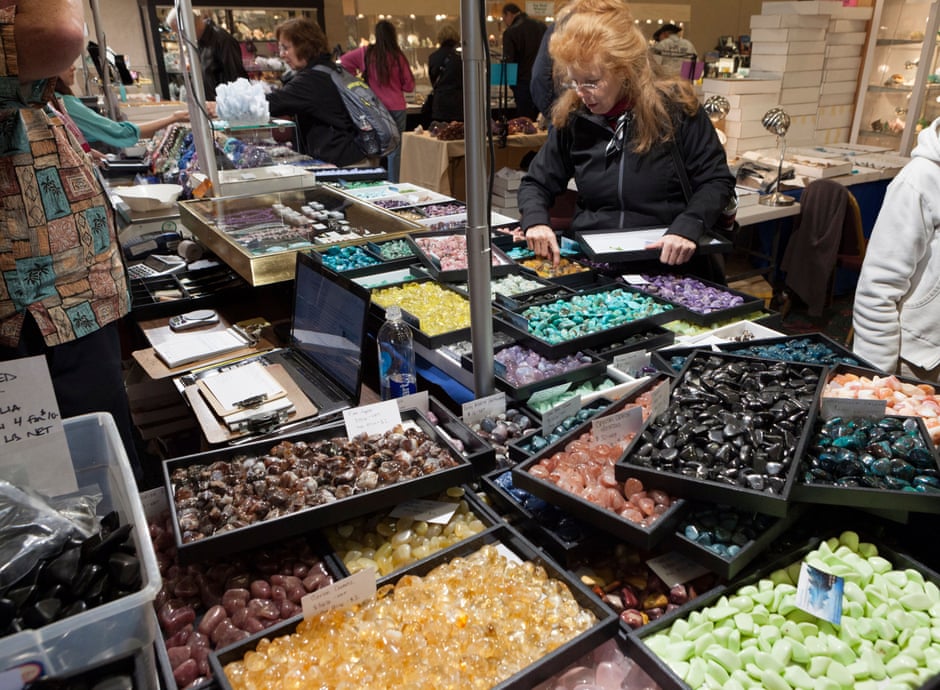
So why is it that crystal consumers, the kind of people who wouldn’t eat a battery-farmed egg, let alone meat they couldn’t trace, are yet to question the provenance of their crystals?
Even worse: as the crystal healing industry explodes, the pressure to undercut prices online is rising too, which makes it harder and harder to insist on ethical mining with its higher associated operational costs.
The truth is, many retailers have no idea where their crystals come from.
Many, like tourmaline, amethyst, quartz and citrine (used to “manifest abundance and prosperity”) are found in gold, copper or cobalt mines, but even publicly traded industrial mines aren’t required to disclose profits from byproducts. And rather than directly from mines, or even the factories where the stones are cut and polished, retailers buy from go-betweens, independent traders who sell at touring shows, who, even if they have documentation to prove their supply chain, are disinclined to share it, in part for fear of doing themselves out of a job.
So in fact, crystal supply chains are currently untracebale for retail shop owners and for final clients alike.
Crystal mining in Peru: What is the reality?
There is some good news, for start:
1.) Peru is not a war-torn country, so Peruvian crystal mining does not fuel war.
2.) In Peru, crystal mining is not linked to the destructive illegal gold mining in the Amazon rainforest in southern Peru. Crystals are mined exclusively in the Andes and nearly all of them are mined in the coastal desert mountains. As the Peruvian desert is one of the driest deserts on earth there is nearly no impact of crystal mining on water bodies, plants or animals.
3.) Childrens labor in Peruvian mining (even in artisan mining) is outlawed and basically unknown in Peru.
But honestly, that’s about it on good news.
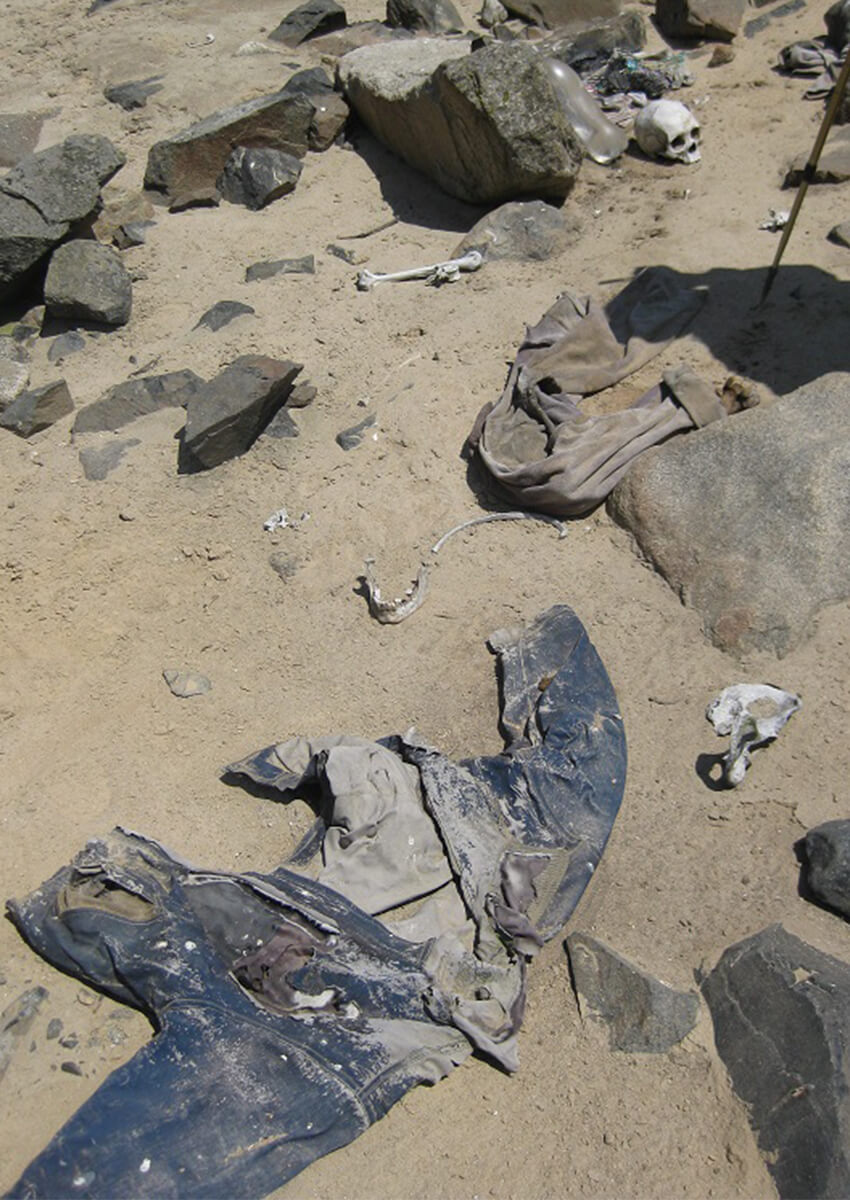
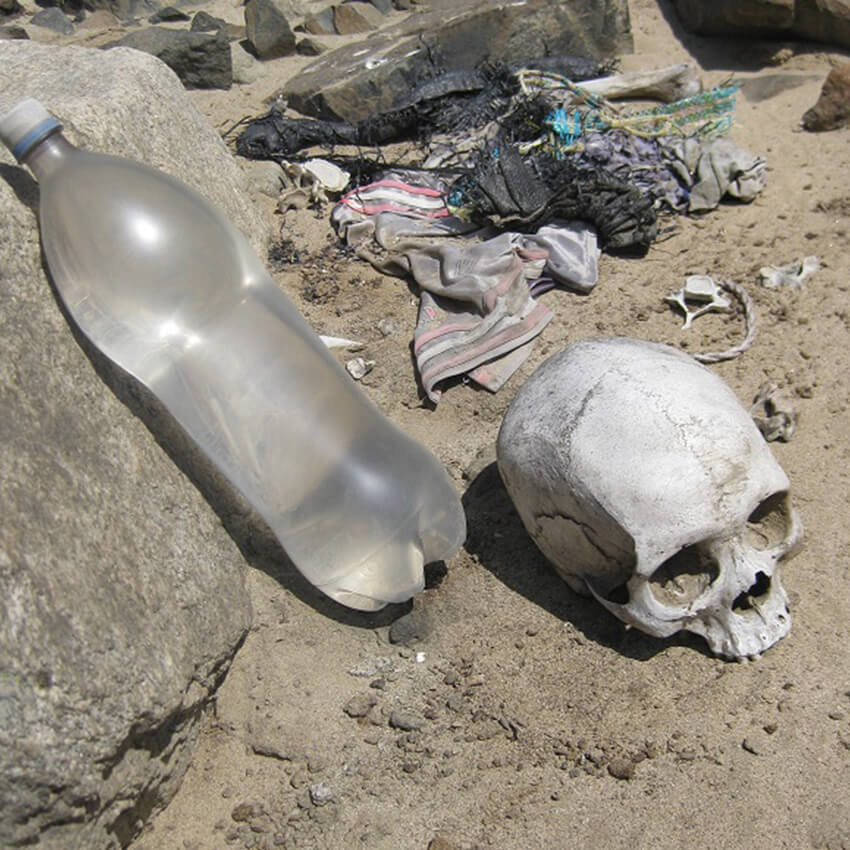
Like in most other development countries, mining areas in Peru are dangerous, unpoliced and uncontrolled.
Theft, murder and armed assaults on mines, miners or people being on the road in such areas is not uncommon, as clearly evidenced by the remains of this poor guy found by us somewhere in the desert when scouting for new crystal veins.
Lack of water could not have been the cause of death. The bullet hole in the jacket provided a different hint.
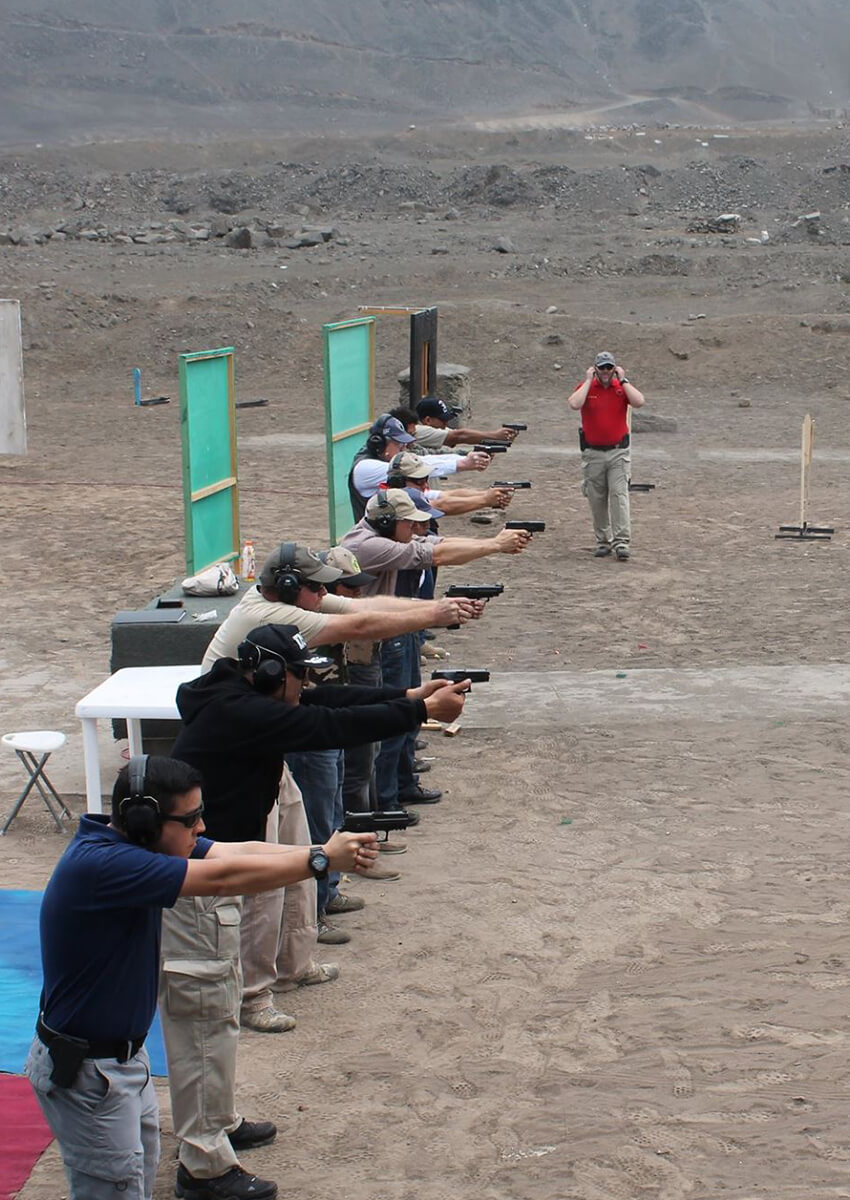
Under such circumstances, wearing guns and being trained to defend yourself becomes a necessity if you want to travel in mining areas in Peru.
In fact, mining companies always need to incorporate a considerable amount of money in their production costs for hiring private armed security forces to guard the mining camps and secure the transport of mined materials.
This is especially true for gold- and silver mining, but is a generalized practise in all Peruvian mining areas.
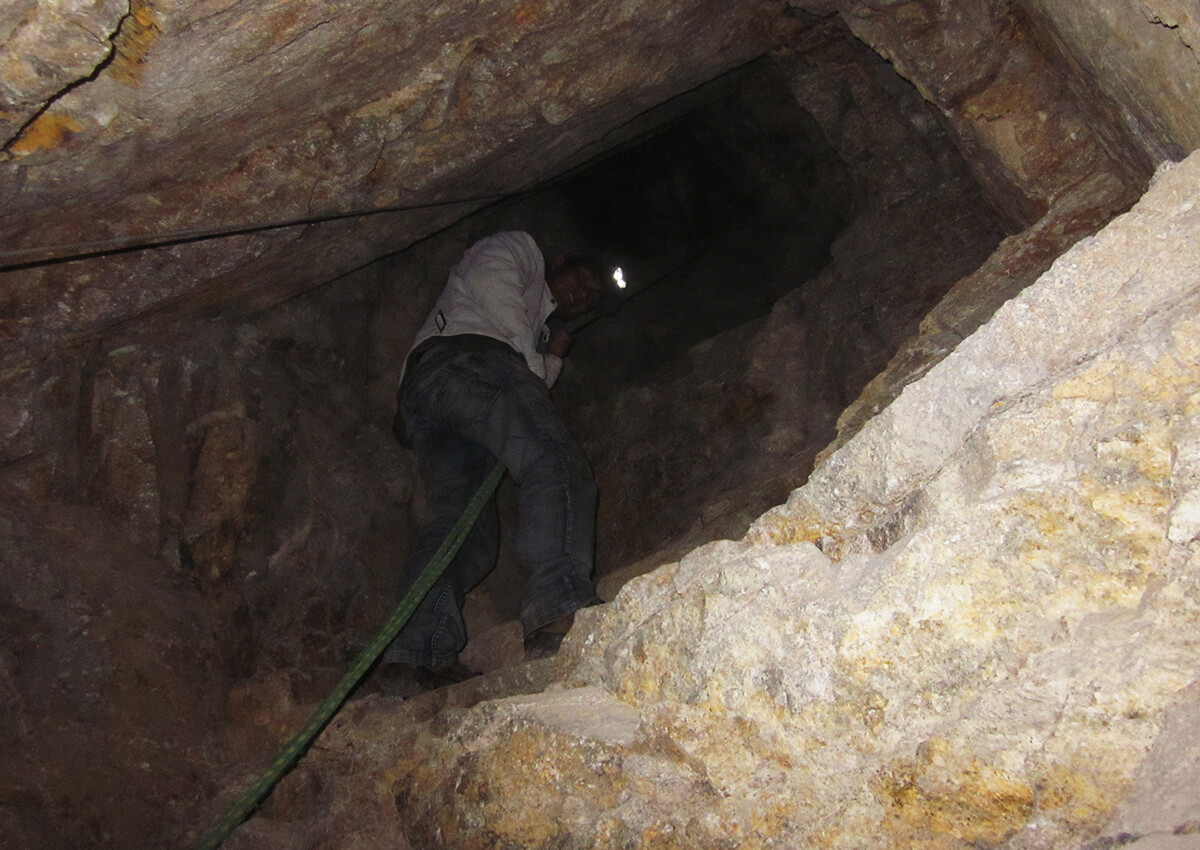
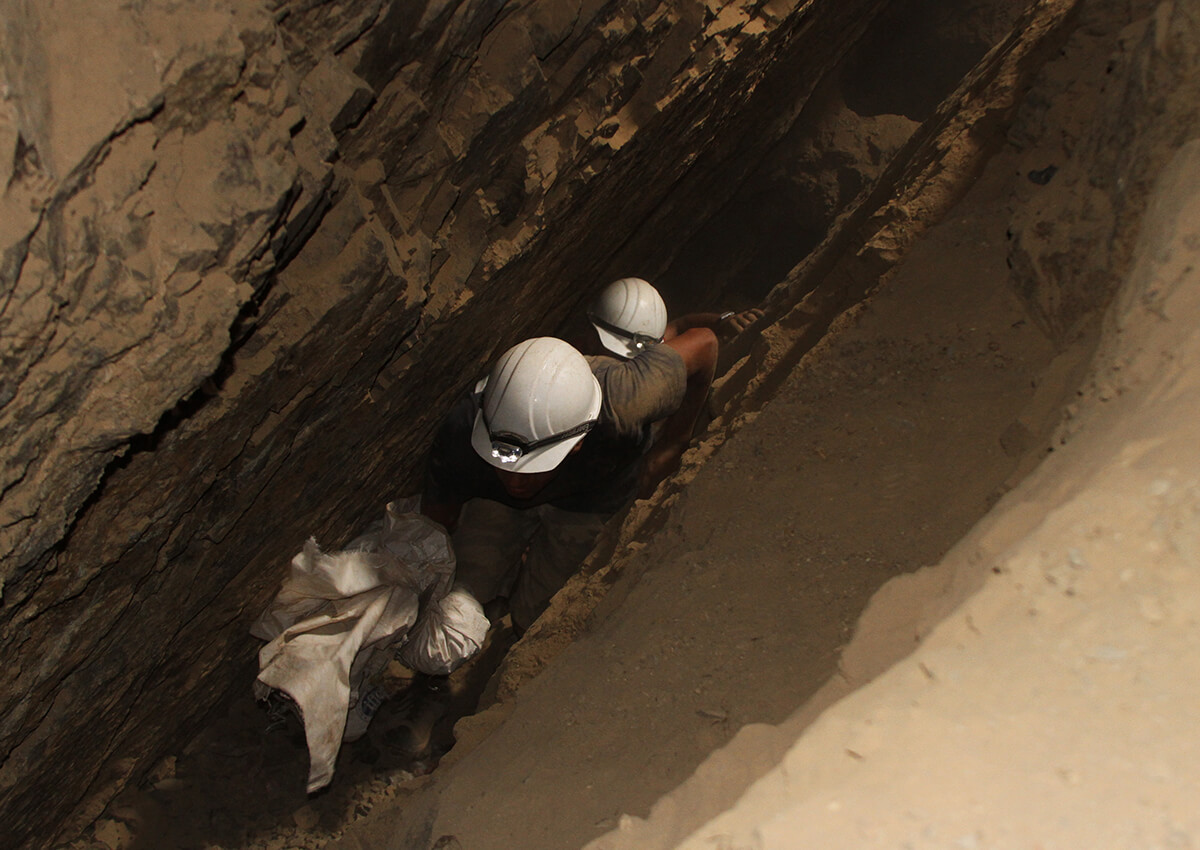
In Peru, like in many other countries, crystal mining is exclusively done by artisan miners.
What they call a mine mostly is an up to 100 meter deep vertical shaft, leading down to different galleries that must be accessed without any kind of safety by climbing down metal ladders that are tied together with ropes or even climbing up and down on ropes only.
Such holes are far from what anyone in Europe or the USA would call a mine. Having an accident here, in a dark hole somewhere in the desert with no phone or internet connection is guaranteed tragedy.
The bone breaking work of manual digging and then lifting the mineral in buckets up to the surface and carrying it on the back for hours down to the next dirt road earns a rock bottom payment by Peruvian mineral and crystal exporters, which is why our Peruvian competitors are able offer their products so cheaply.
Miners have no insurance, don’t get retirement benefits, have no holidays nor sick-leaves and get rewarded by Peruvian middlemen as well as Chinese and Indian wholesalers paying abusively low prices for the rocks and crystals.
Trying to turn the tide
In this video Stefan Austermühle, general manager of Gemrock Peru, tells us how his storry shaped Gemrock perus goals of sustainability.
We at Gemrock Peru are trying to make a difference. It was clear that in order to break the vicious cycle of labor abuse based on the international request for dirt cheap crystal products it was necessary to take things in our own hands and risk to step out of the race for ever cheaper prices.
In 2021 we started our own crystal mining operation. We are not mining for gold or copper and finding crystals as by product. We are actually investing in crystal mining itself.
Our mining team leaders are no geologists or mining engineers but experienced artisan crystal miners and collectors who know exactly what to look for in the desert.
Our mining workers are hired with a real contract in their hands that contains all legally required health and labour benefits. They are not paid by product but get a monthly salary, independently of the fact if their mining was successful or not. They work five days a week and have a full weekend to relax. They are provided with full logistic, technical and safety support required.
Ofcourse we do care for the environement too. Being a professional biologist working 35 years in nature conservation as Greenpeace activist, undercover investigator and NGO manager, being the general manager of a mining operation is the place where I should be, making sure that environmental protection gets the importance it should have in any mining operation.
Trash from the mining operations is collected and returned to the city for adequate deposition. Crystal mining does not require the use of chemicals and the use of dynamite must be avoided if possible in order to prevent the crystals from damage.

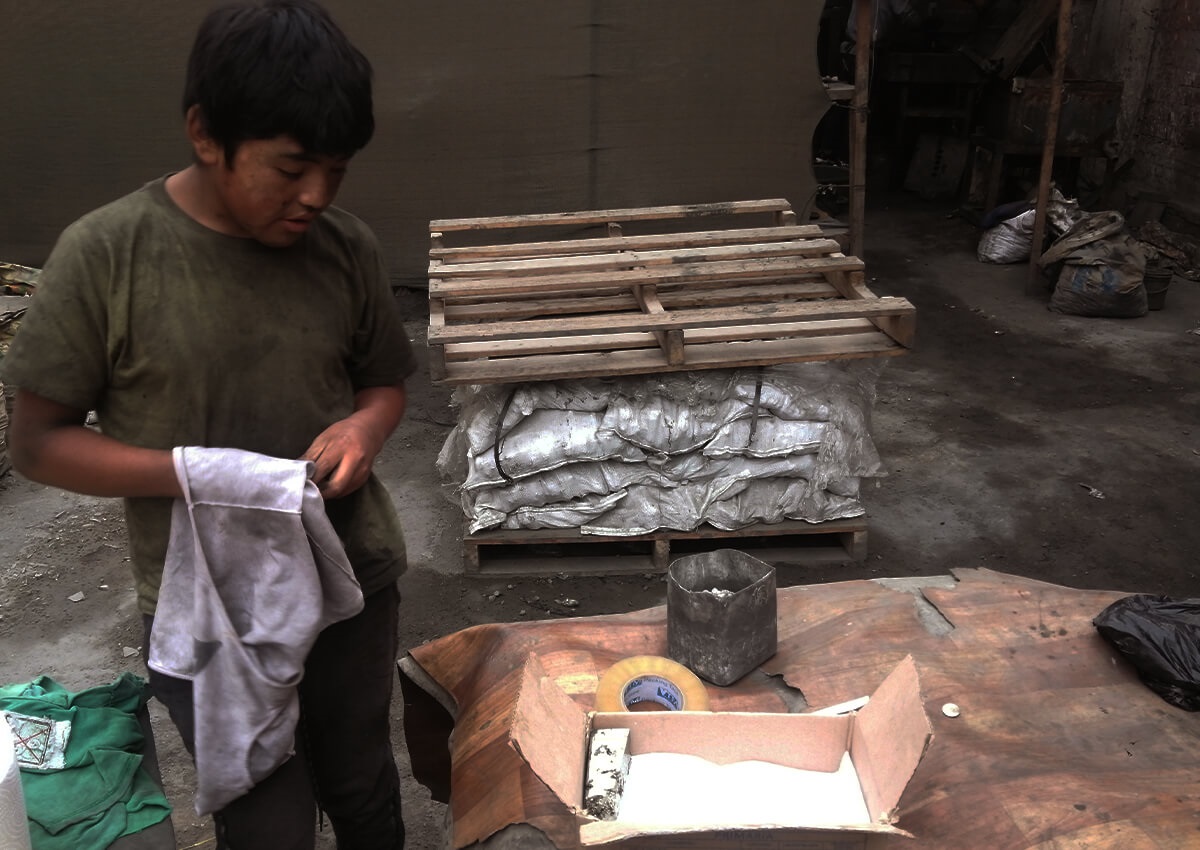
Ethical Crystal Sourcing
The Sky is the Limit!
We believe in global cooperation of like-minded companies and investors in order to earn money while changing the world for better.
Partner with us in this tide-changing spearheading initiative and provide your clients with 100 % traceable really ethical crystal products while protecting the environment, supporting fair trade and ethical labour conditions as well as fighting child labour.
And while making the world a better place, you will also make profits from on the project, have access to exclusive investor discounts and enjoy a free global marketing campaign resulting in an improved image of your bussiness and more clients.
Get a unique edge over your competitors.
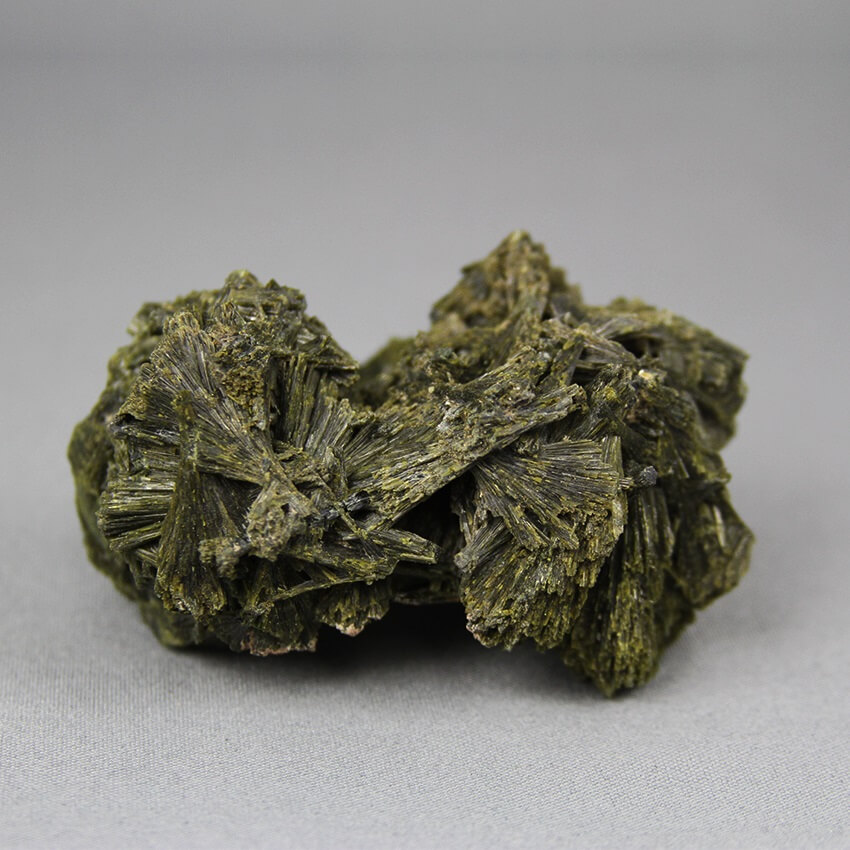
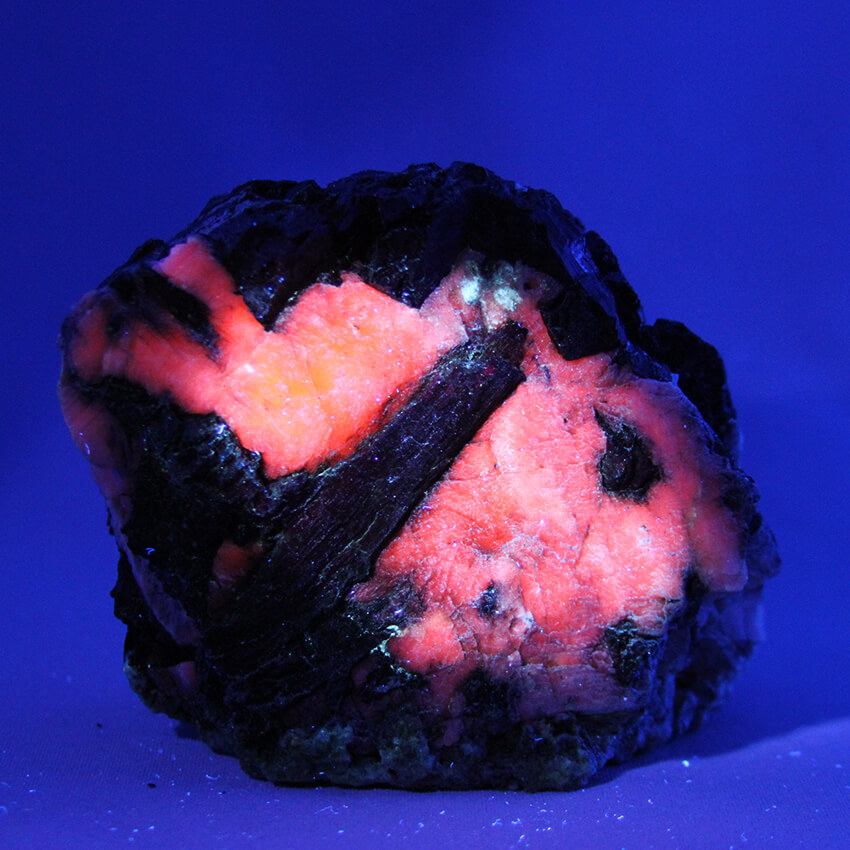
So far our young mining operation proves to be successful with the production of fine tourmaline and epidote crystals, as well as the find of new mineral combinations for carving products, and promising finds of apatite and yellow tourmaline being part of the gemstone family.
One of the more exiting finds are globally new mineral combinations like toumaline crystals in red-fluorescent calcite, being found in our area.
Ofcourse, our legal and formal mining operations are much more costly than the usual informal, illegal and unethical mining being practised by all our Peruvian competitors.
However, we are in good spirits, that the awakening of consciousness in the crystal market, that can be noted recently, will support us in growing ethical mining in Peru and leading the Peruvian lapidary industry into a time of fair-trade and sustainable development instead of staying stuck in abusive profit-maximisation by Peruvian crystal exporters and middlemen on the back of poor Peruvian artisan miners.
By buying your crystals and crystal products from Gemrock Peru you can support change and benefit artisan miners.
Your business can be sure of the ethical sourcing of the product as mining, lapidary production and global wholesale of our products are all in our hand and we are transparent about all details of our production and delivery chain.
And you can offer your clients the joy of receiving first-class quality products that do not only avoid the problems of unethical crystal mining but actually benefit sustainable development. Products that come with the clean energy of doing good.
Sources:
Global Witness: “Afghanistans famous lapis mines funding taliban and armed groups”, https://www.globalwitness.org/en/press-releases/afghanistans-famous-lapis-mines-funding-taliban-and-armed-groups-new-investigation-shows/
Small wars Journal: “Emerald Wars in Colombia” https://smallwarsjournal.com/jrnl/art/emerald-wars-colombia%E2%80%99s-multiple-conflicts-won%E2%80%99t-end-with-the-farc-agreement
The Guardian: “Dark crystals: the brutal reality behind a booming wellness craze” https://www.theguardian.com/lifeandstyle/2019/sep/17/healing-crystals-wellness-mining-madagascar
The Guardian: “Are crystals the new blood diamonds?” https://www.theguardian.com/global/2019/jun/16/are-crystals-the-new-blood-diamonds-the-truth-about-muky-business-of-healing-stones
Do you have any question about our ethical crystal mining operation or do you want to become a investor and take part in it?
Get in Touch
+51 994104206
gemrockinternational@gmail.com
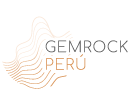
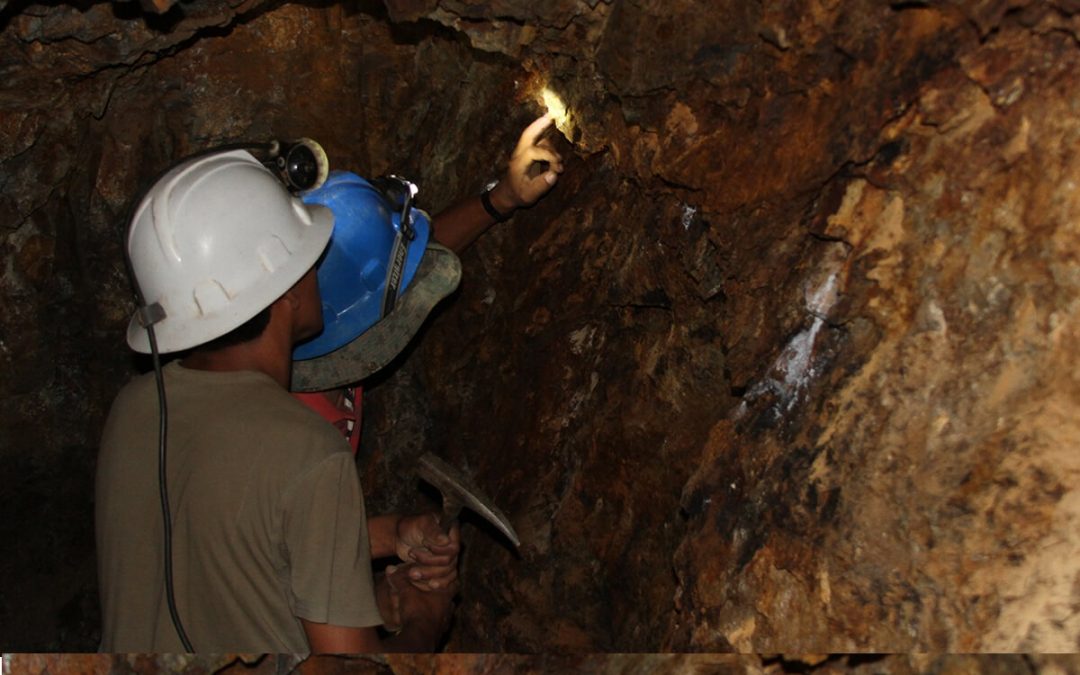
Recent Comments